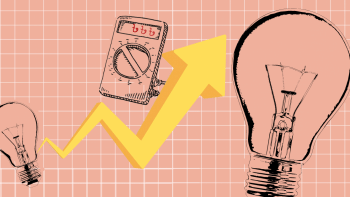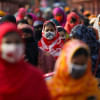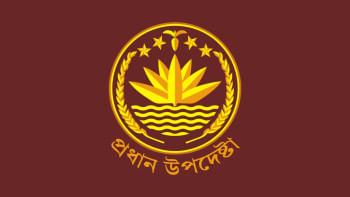How do LNG subsidies affect public spending?

Energy subsidies have emerged as one of the most important policy challenges for energy-importing countries, particularly for developing nations like Bangladesh. The substantial amount of money spent on energy subsidies restricts state spending on vital development areas. Given our current financial stress, the additional requirement for subsidies to meet the expenses of liquefied natural gas (LNG) import would significantly impact the government's capacity to allocate the budget in several ways. The funding and subsidies given to other important sectors, such as agriculture, health, education and social safety, would be reduced because of the allocation made to support LNG import.
Bangladesh's LNG imports have progressively grown after contracts were signed with Qatar's Ras Laffan Liquefied Natural Gas Company Ltd (Qatar Gas) and Oman Trading International (OQT) in FY 2017-18. We imported 5.73 million cubic metres of LNG during FY 2018-19, 9.45 million cubic metres during FY 2019-20, and 10.15 million cubic metres during FY 2020-21. Overall, 25.33 million cubic metres of LNG was imported from various sources until June 2021. Of this amount, 93.7 percent were imported under long-term contracts, and the remaining 6.3 percent was imported from the spot market.
During FY 2018-19, Bangladesh spent USD 8.97 per MMBtu on LNG imports from Qatar Gas. The unit cost dropped in the following years, reaching USD 6.23 per MMBtu in FY 2020-21. Similarly, Bangladesh paid USD 8.08 per MMBtu in FY 2018-19 to import LNG from OQT, which went down to USD 6.29 per MMBtu in FY 2020-21. On average, USD 7.98 per MMBtu was paid for purchases from the spot market during FY 2020-21. According to estimations by the Centre for Policy Dialogue (CPD), a total of Tk 44,991 crore was spent to import LNG between 2018 and 2021.
Since LNG imports began in 2018, government subsidies have increased to keep up with the rising costs. Petrobangla received Tk 1,000 crore in LNG subsidy in FY 2018-19, Tk 2,500 crore in FY 2019-20, and Tk 2,812 in FY 2020-21. LNG subsidies increased in FY 2021-22 owing to the Russia-Ukraine war. The government disbursed Tk 4,000 crore in subsidies to import LNG in the first nine months of FY 2021-22, which might have doubled towards the end of the year. After the announcement of the new retail tariff for gas (a rise of about 148-178 percent) on January 18, the subsidy burden is likely to be eased. Even then, subsidies as a percentage of the budget and GDP would remain a major concern.
If subsidies continue to grow exponentially, the government may be forced to reallocate funds or resources from other economic activities or turn to borrowing funds. The economy may have inefficiencies in distributing and allocating resources across diverse sectors and activities.

According to a CPD analysis, in 25 net energy-importing countries, public spending on health and education decreases by an average of 1.63 percentage points of GDP if energy subsidy rises by one percentage point of GDP. If this analysis is considered for Bangladesh, then the social sectors (which in this case includes education and health sectors only) were deprived of Tk 1,706 crore in FY22.
The CPD found that during FY 2022-23, the education sector got 11.8 percent of the overall ADP, up from 10.3 percent in FY 2021-22. However, in terms of GDP, this is 1.83 percent less than that in the previous fiscal year. Having one of the lowest public spending for education in the world, it accounts for much less than the advised minimum of four to six percent of GDP and 20 percent of the national budget. Meanwhile, compared to the ADP of FY 2021-22, the health sector's share climbed slightly to 7.8 percent. In contrast, the share of health in terms of GDP decreased by 0.12 percent. Overspending on subsidies, including those for LNG import, would be a reason for a decrease in the budget for social sectors.
Along with the usual budgetary allocation, recently the finance ministry granted Petrobangla permission to spend Tk 2,000 crore from the Gas Development Fund (GDF) in response to a request from the Energy and Mineral Resources Division (EMRD). Such a decision is against the principle of GDF, which is supposed to be used for the development of domestic gas reserves through exploring on- and off-shore gas fields. More importantly, if the GDF is used for exploring more domestic gas reserves, the financial and fiscal burden due to LNG imports would substantially decline.
Recent trends and developments suggest that the country's development process may be threatened by the rising reliance on LNG from outside sources. The government may consider the following measures in order to improve public spending on social sectors.
● Subsidies for the imported LNG industry need to be rationalised. There are concerns that the country's financial stability may be negatively impacted by the rising trend in LNG prices in the international market, which would ultimately shift the cost burden to social sectors that are more vulnerable. Bangladesh has to immediately adopt subsidy reform to streamline spending for the energy sector.
● If the government continues to subsidise the LNG business, the country will have a tough time switching to clean and green energy. Additionally, Bangladesh has a lot of underutilised gas resources. Thus, the government needs to invest more into utilising domestic gas reserves.
● To ease the financial strain and excessive subsidy burden for importing LNG and other fossil fuels, the government should encourage increased investment in sustainable energy. By utilising green climate funds, the private sector may invest more in renewable energy. To promote foreign direct investment in smart grid systems, energy efficiency, and renewable and sustainable energy, necessary fiscal instruments must be developed.
● Future long-term LNG contracts must account for and be restricted to the gas demand that is currently in place; they must not consider expected future demand. This will make it easier for alternative energy sources, such as renewable energy, to meet future demand.
Dr Khondaker Golam Moazzem is research director at the Centre for Policy Dialogue (CPD).
Moumita A Mallick is programme associate at CPD.

 For all latest news, follow The Daily Star's Google News channel.
For all latest news, follow The Daily Star's Google News channel. 








Comments